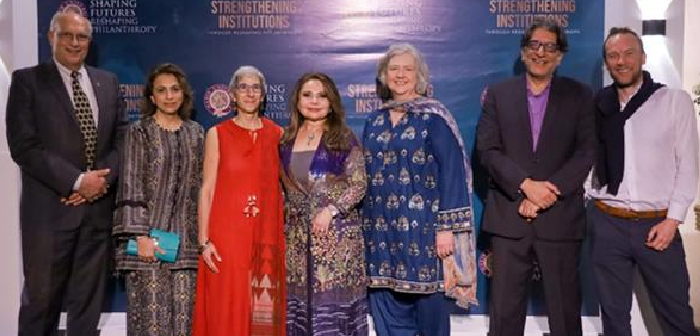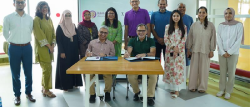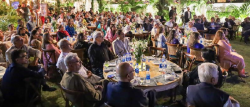In a country where less than 13 out of every 100 youth gain access to higher education (UNESCO UIS, 2023), the challenge in Pakistan is not just about getting students into classrooms, it’s about transforming the very institutions that define what those classrooms offer. On February 15, Habib University responded to this urgent need through its Annual Community Event, titled “Strengthening Institutions Through Reshaping Philanthropy.” Hosted in Karachi, the evening brought together visionary philanthropists, business leaders, and academics united by a shared purpose: building sustainable, high-quality higher education in Pakistan.
At the heart of the event was a powerful message—philanthropy must move beyond temporary acts of charity and evolve into long-term commitments that strengthen institutions. These institutions, in turn, create the intellectual and civic capacity a society needs to flourish.
A Collective Commitment to Enduring Change
The evening was hosted by Dr. Zeelaf Munir, Managing Director and CEO of English Biscuits Manufacturers and Member of the Board of Directors of the Habib University Foundation. Setting the tone for the evening, Dr. Munir stated:
“To sustain and grow Habib University’s vision, we need collective commitment. Higher education is not just an opportunity, it is the foundation of national progress. The future of Pakistan will be shaped by the decisions we make today.”
This framing invited participants to think beyond individual scholarships and toward the generational impact of investing in institutions that can deliver quality, equity-driven education at scale.
Education, as Lived and Told by Alumni
The university’s impact was made tangible through the voices of its alumni. The screening of Meri Uraan, Habib University’s alumni video story series, featured Behjat Ansari, Computer Science Class of 2021 and Senior Business Analyst at Paysys Labs. Her journey illustrated how financial access to a liberal arts education enabled her to think beyond survival and toward service.
“Habib University didn’t just give me an education; it gave me a chance to grow, to dream, and to believe in a future where I could contribute meaningfully to my community and my country.”
Areeb Adnan Khan, a Computer Engineering Class of 2024 graduate and Machine Learning Engineer at Folio3, shared how the university’s interdisciplinary model had shaped his worldview and instilled in him values rooted in empathy, critical thought, and community engagement.
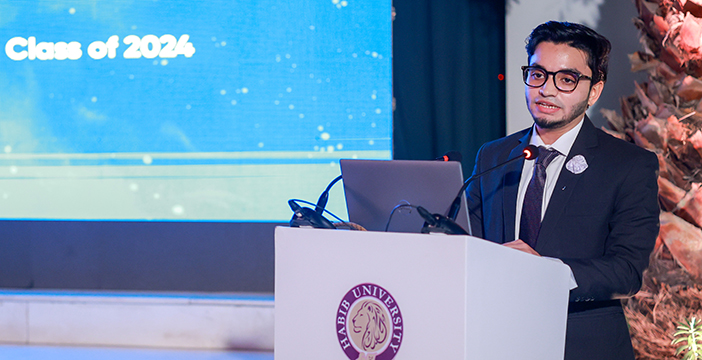
Philanthropy for Permanence, Not Patching
Following the alumni voices, President Wasif Rizvi took the stage with a compelling presentation titled “Tempting the Fates: Rewriting the Future of Higher Education in Pakistan.” Invoking the ancient metaphor of the mythological Three Fates—figures who spin, measure, and cut the threads of life—he introduced a powerful framework to critique the inequities that define access to higher education around the world.
This metaphor was more than poetic; it was a provocation. It raised urgent questions about who controls the beginning, distribution, and end of opportunity in a society. President Rizvi urged the audience to disrupt these patterns and take collective responsibility for shaping a new future—one rooted in strong institutions that can outlast momentary solutions.
“Building robust endowments,” he argued, “is our way of rewriting the future. It ensures the thread of higher education in Pakistan is spun strong, measured wide, and allowed to last.”
His message was clear: without strong institutions, access will remain fragile, and quality will be incidental, not intentional.
A Global Vision with Local Urgency
The theme of permanence was carried forward by Dr. Alexander Key, Associate Professor at Stanford University and a member of Habib’s Board of Governors.
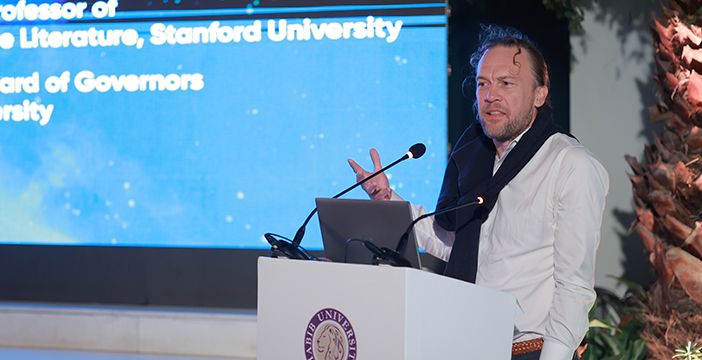
“What we are talking about here this evening is the prospect of permanence—the chance to make these moments last.”
Also present at the event were fellow Board of Governors members Dr. Lynn A. Stein from Olin College of Engineering, Dr. Jennifer Ross Wolff from Carleton College, and Dr. Mark Weichold from Texas A&M University—reinforcing the deep academic partnerships and global vision that continue to inform Habib University’s mission.
A Call from Industry Leaders
Following the academic reflections, Mr. Atif Bajwa, CEO of Bank Alfalah, addressed the audience with a powerful reminder:
“Pakistan doesn’t just need educated individuals; it needs responsible citizens. The country’s current social and intellectual discourse requires a shift. For this to happen, we must establish and strengthen institutions like Habib University in our lifetime, ensuring their impact extends across generations.”
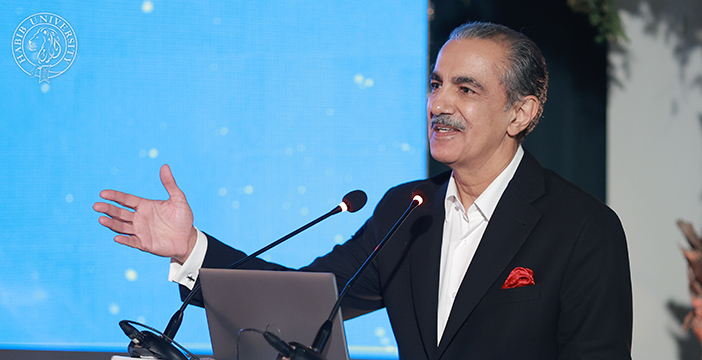
His words reinforced the idea that institutions are not only academic assets but social and civic anchors.
Looking Ahead
The event concluded with a vote of thanks from Mr. Mohomed Bashir, Chairman of Gul Ahmed Textiles, Board Member and Chair of the Resource Development Committee, Habib University Foundation:
“With the support of Habib University’s Mohsineen, we are on a journey to reshape philanthropy, and it has just started. Ten years is a small time, and I believe we have a very long way to go.”
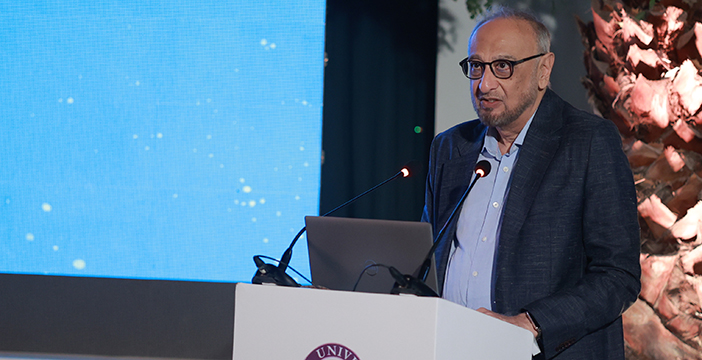
Through the generosity and commitment of its supporters, and the strength of its alumni stories, Habib University continues to chart a bold, equity-driven path—proving that in Pakistan, quality higher education doesn’t just need funding; it needs vision, permanence, and belief in institutions.

